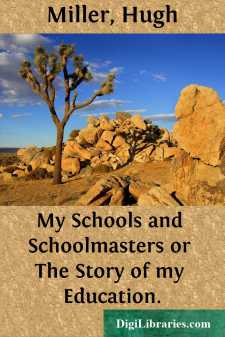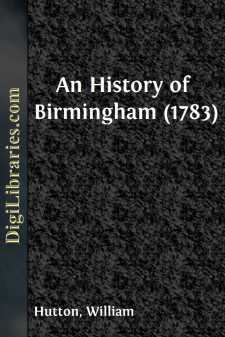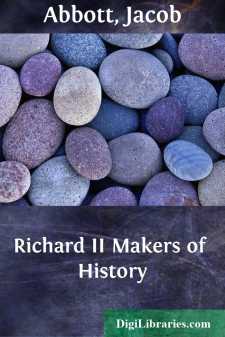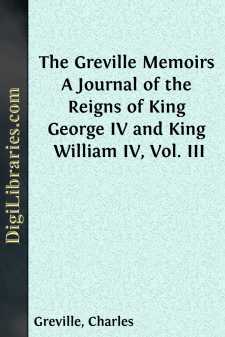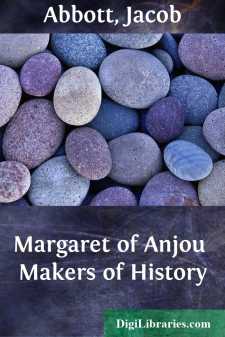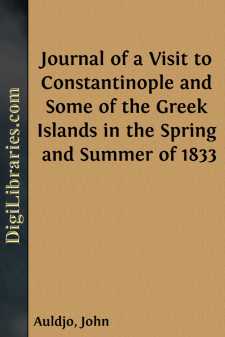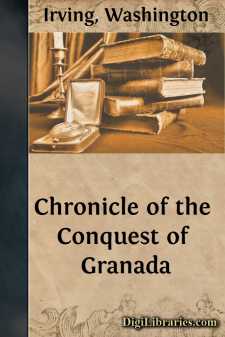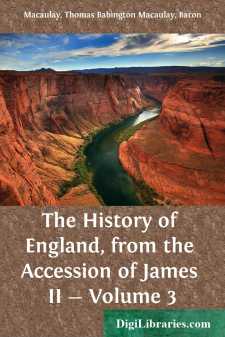History
- Africa 30
- Americas (North Central South West Indies) 50
- Ancient 68
- Asia 58
- Australia & New Zealand 8
- Canada 41
- Caribbean & West Indies 1
- Civilization 20
- Eastern Europe 12
- Europe
- Expeditions & Discoveries 60
- General 77
- Historical Geography 1
- Jewish 9
- Latin America 3
- Medieval 8
- Middle East 14
- Military 248
- Revolutionary 8
- Study & Teaching 5
- United States 353
- Western Europe 56
- World 13
Europe Books
Sort by:
by:
Anthony Hamilton
The accounts prefixed to the different editions of his works, down to the year 1805, are very imperfect; in that year a new, and, in general, far better edition than any of the preceding ones, was published in Paris, to which a sketch of his life was also added; but it contains rather just criticisms on his works, than any very novel or satisfactory anecdote concerning himself. It is not pretended here...
more...
by:
Hugh Miller
CHAPTER I."Ye gentlemen of England,Who live at home at ease,Oh, little do ye think uponThe dangers of the seas."—Old Song.Rather more than eighty years ago, a stout little boy, in his sixth or seventh year, was despatched from an old-fashioned farm-house in the upper part of the parish of Cromarty, to drown a litter of puppies in an adjacent pond. The commission seemed to be not in the least...
more...
by:
William Hutton
AN HISTORY &c. Some account of the derivation of the name of Birmingham. The word Birmingham, is too remote for certain explanation. During the last four centuries it has been variously written Brumwycheham, Bermyngeham, Bromwycham, Burmyngham, Bermyngham, Byrmyngham, and Birmingham; nay, even so late as the seventeenth century it was written Bromicham. Dugdale supposes the name to have been given...
more...
by:
Jacob Abbott
Richard's Predecessors. There have been three monarchs of the name of Richard upon the English throne.Three Richards.Richard the Crusader.Richard I. is known and celebrated in history as Richard the Crusader. He was the sovereign ruler not only of England, but of all the Norman part of France, and from both of his dominions he raised a vast army, and went with it to the Holy Land, where he fought...
more...
by:
Charles Greville
June 29th, 1833 I am going, if not too lazy, to note down the everyday nothings of my life, and see what it looks like. We dined yesterday at Greenwich, the dinner given by Sefton, who took the whole party in his omnibus, and his great open carriage; Talleyrand, Madame de Dino, Standish, Neumann, and the Molyneux family; dined in a room called ‘the Apollo’ at the Crown and Sceptre. I thought we...
more...
by:
Jacob Abbott
The Houses of York and Lancaster. A real heroine. Margaret of Anjou was a heroine; not a heroine of romance and fiction, but of stern and terrible reality. Her life was a series of military exploits, attended with dangers, privations, sufferings, and wonderful vicissitudes of fortune, scarcely to be paralleled in the whole history of mankind. Two great quarrels. She was born and lived in a period...
more...
by:
William Hunt
Seventy-five years have passed since Lingard completed his History of England, which ends with the Revolution of 1688. During that period historical study has made a great advance. Year after year the mass of materials for a new History of England has increased; new lights have been thrown on events and characters, and old errors have been corrected. Many notable works have been written on various...
more...
by:
John Auldjo
DEPARTURE OF THE ACTÆON.Saturday, 6th April, 1833.—Well! All seems at length arranged, and the oft postponed departure of H. M. S. Actæon for Constantinople, will probably take place this evening. But is there no chance of a further detention? Yes; and many a palpitating heart watches anxiously the state of the heavens. The morning had been dark and stormy, and heavy vapours rolled along from the...
more...
INTRODUCTION. Although the following Chronicle bears the name of the venerable Fray Antonio Agapida, it is rather a superstructure reared upon the fragments which remain of his work. It may be asked, Who is this same Agapida, who is cited with such deference, yet whose name is not to be found in any of the catalogues of Spanish authors? The question is hard to answer. He appears to have been one of the...
more...
THE Revolution had been accomplished. The decrees of the Convention were everywhere received with submission. London, true during fifty eventful years to the cause of civil freedom and of the reformed religion, was foremost in professing loyalty to the new Sovereigns. Garter King at arms, after making proclamation under the windows of Whitehall, rode in state along the Strand to Temple Bar. He was...
more...



